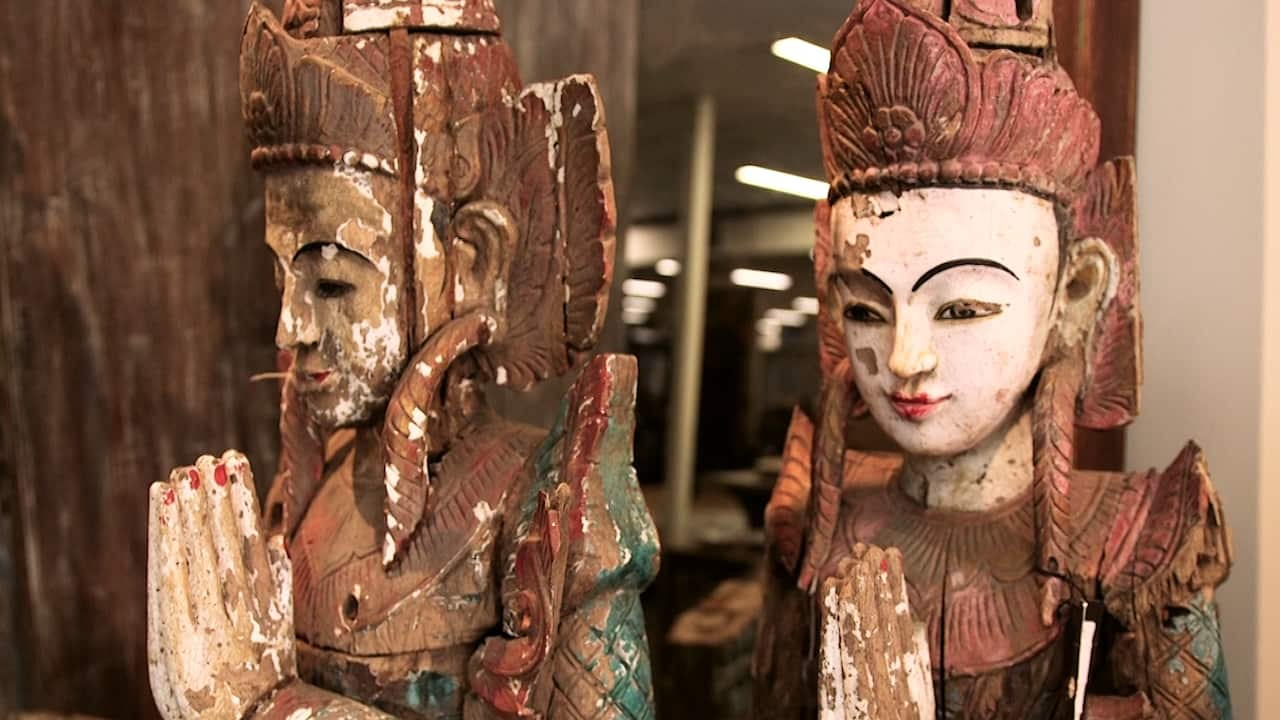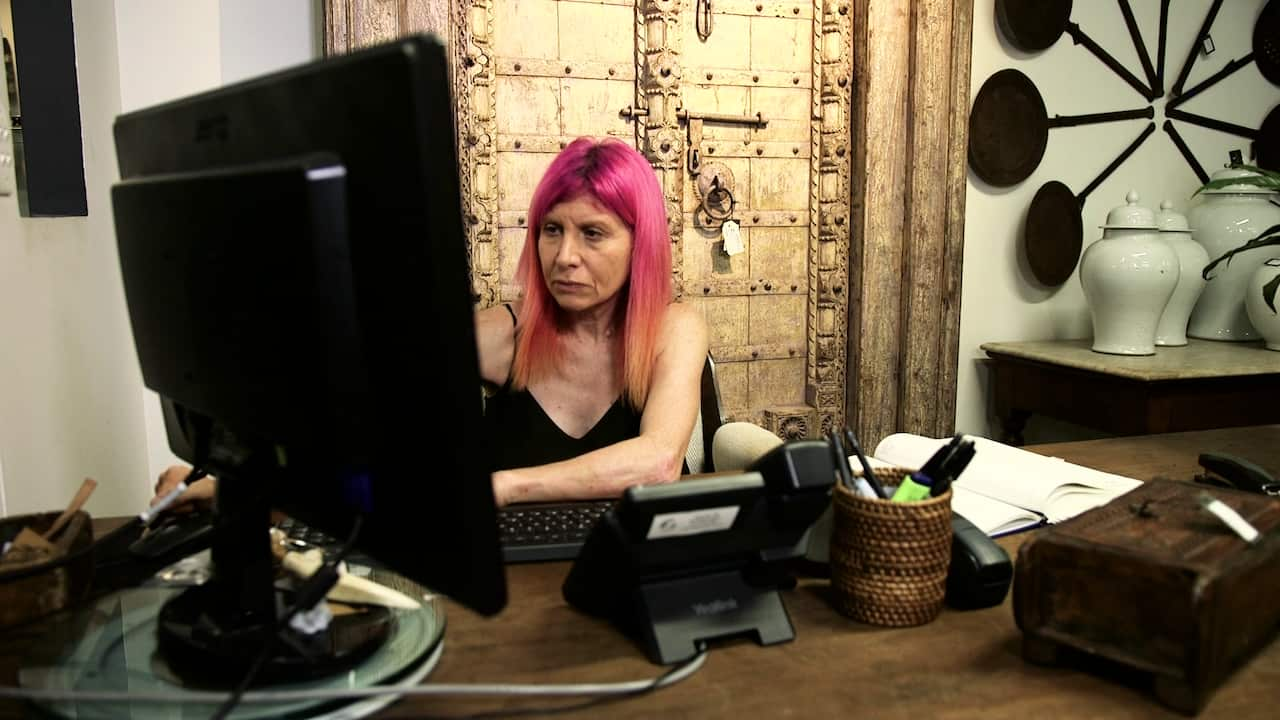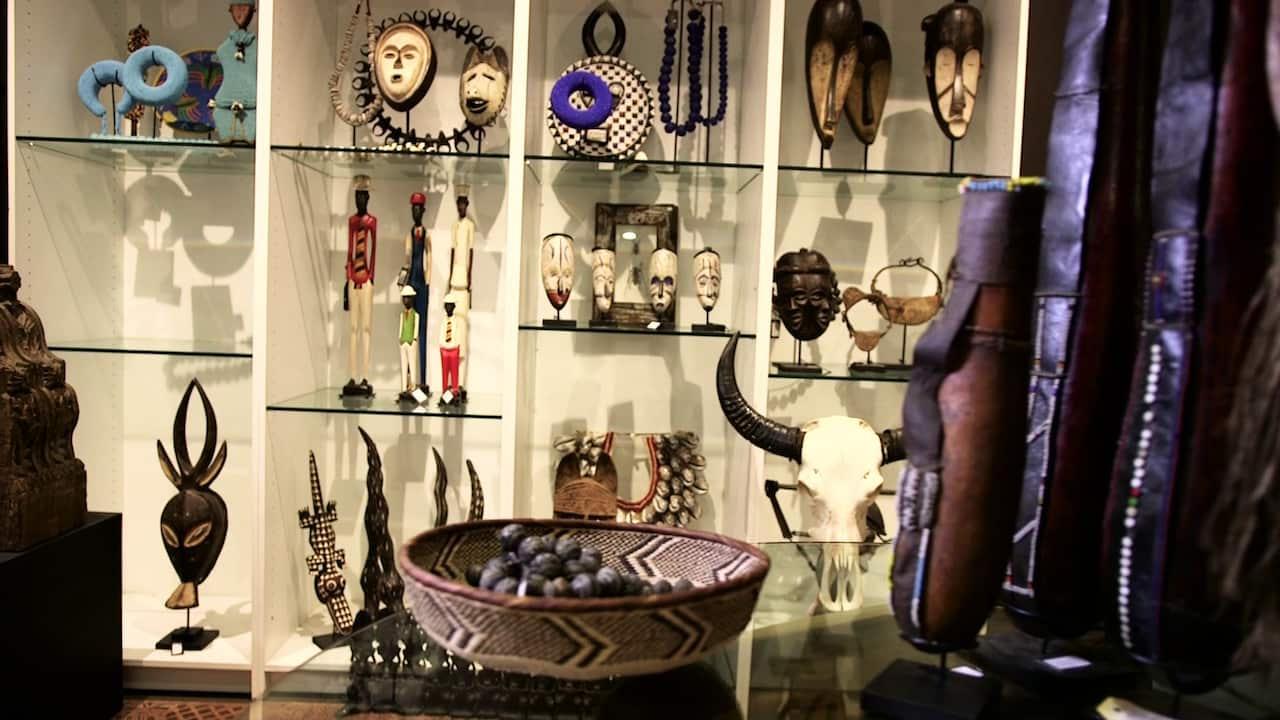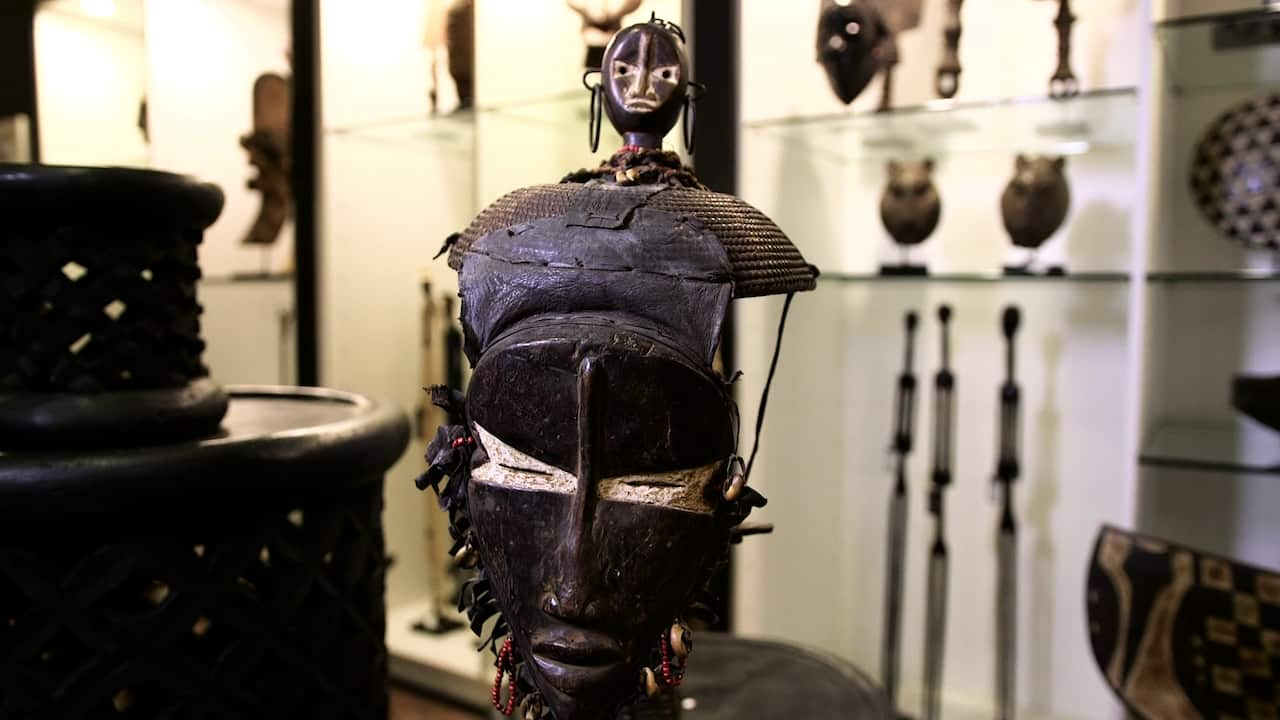The founders of Orient House opened their first store in the inner-city suburb of Pyrmont in 1998, first focusing on goods from China.
“We’ve grown from three containers of Chinese furniture a year to 24 containers from all over the world,” Jenny Liebson said. “We started in China and then about 15 years ago, we ventured to Korea and Thailand, and then Indonesia and India, and we always go back to Africa, where we were born.”
“We started in China and then about 15 years ago, we ventured to Korea and Thailand, and then Indonesia and India, and we always go back to Africa, where we were born.”

Artefacts in the Orient House store Source: SBS Small Business Secrets
The Liebson siblings grew up in South Africa, and their father was a keen collector of unique furniture.
Twenty years of running the business has honed Ms Liebson’s eye for design, and she says that gives her and her brother a unique advantage.
“I really don’t believe it’s something that can be taught. Adam and I travel with filthy things with rats running around,” Ms Liebson said. “We see a piece of furniture and within that; we can see the inherent beauty when it’s restored.”
“We see a piece of furniture and within that; we can see the inherent beauty when it’s restored.”

Source: SBS Small Business Secrets
Two decades of travelling to source goods from all over the world has created a valuable network of contacts for the business owners, who rely on local suppliers to find quality items.
“In India, when Raja was advised that a palace is being pulled down, and he’s invited to the auction of the bits and pieces, he knows there are pieces there that we will buy from him,” Ms Liebson said.
“It’s incredibly important; those relationships are what make our pieces.”
But, getting these artefacts into Australia comes with its own share of challenges, some of which have a direct financial impact on the business.
“Beautiful pieces that have maybe had a bit of algae or a little bit of dirt, I understand that you’re not allowed to bring them in, but if it’s been fumigated a little bit of leeway way be nice,” Ms Liebson said. “And, there are all the things that have changed in banking…it might be at the end of the financial year when your accountant says to you, do you know that you paid $20,000 in bank fees and charges, that you take a big step and say, that’s $20,000 of my bottom line.”
“And, there are all the things that have changed in banking…it might be at the end of the financial year when your accountant says to you, do you know that you paid $20,000 in bank fees and charges, that you take a big step and say, that’s $20,000 of my bottom line.”

Many of the items in the store come from South Africa Source: SBS Small Business Secrets
While balancing the books is a concern for Ms Liebson now, she sees another problem emerging which could have a major impact on her business. Travelling the world has allowed her a unique window into the lives of artisans and craftspeople, but she’s sad to note that many ancient traditions may soon die out.
Travelling the world has allowed her a unique window into the lives of artisans and craftspeople, but she’s sad to note that many ancient traditions may soon die out.

The store is popular with interior designers Source: SBS Small Business Secrets
“When we first started buying a certain basket from the north of Thailand, there were 60 weavers there. There’s five left,” she said.
“Once those old guys pass away, there’s going to be absolute no one left to make those beautiful baskets.”
Ms Liebson says looking for these unique artefacts has allowed her to see the beauty in the world, even in times of conflict.
“There’s a unique opportunity in every country. In South Africa, despite all the violence and poverty, they’re the most amazingly creative people,” she said.
“You can find the most beautiful products, and in spite of all the adversity, there’s something to find everywhere.”
Share
Sharing business secrets of inspiring entrepreneurs & tips on starting up in Australia's diverse small business sector. Read more about Small Business Secrets
Have a story or comment? Contact Us



